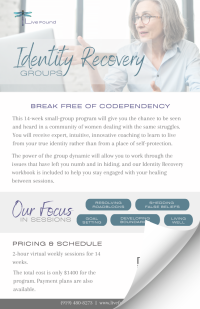Why Safe Relationships Matter in the Healing Journey
Healing from abuse is profoundly challenging, especially without safe relationships. Survivors of abuse often struggle to recognize what constitutes a safe relationship. For many women recovering from abuse, unhealthy individuals who demand that they prove their worth in order to receive love can feel “safe” because their behavior feels “normal” or familiar to the survivor. But, these relationships are not safe.
To heal effectively, it is crucial to understand what a safe relationship entails and to actively cultivate and foster connections that are genuinely secure.
5 Signs You Are in a Safe Relationship
1. Safe People Support Your Growth
Safe people help you become a better version of yourself. They encourage your strengths and positive qualities, while lovingly pointing out behaviors that could lead you to hurt yourself or others. Unsafe people, on the other hand, may reject your ideas or discourage you from making healthy choices, questioning whether you really have what it takes to succeed. They may not want to see you excel or gain the spotlight. In contrast, safe people celebrate your victories, support you in tough times, and walk alongside you on your journey to personal growth.
2) Safe People Encourage Healthy Community
Safe people help you connect with other safe individuals. They want you to have a network of supportive friends and are not possessive. Safe people recognize that there are many wonderful people in the world and are excited to share those connections with you. They actively embrace positivity and share it with those around them. Meanwhile, unsafe people tend to judge or mock from the sidelines; they are often cynical, gossiping, and seeking out drama.
3) Safe people are consistent and Fair
They do not hold you to a standard that they themselves do not follow. Unsafe people are often entitled and may expect things from you that they are not willing to give in return. For example, they might expect you to listen to their problems while consistently being dismissive when you share yours, or they might be habitually late and then criticize you for being late.
4) Safe People Communicate Honestly
Safe people have open communication and are receptive to feedback. They let you know when they feel hurt by your actions and seek to restore the relationship. In your interactions with a safe person, you should feel comfortable expressing when they have hurt you, and they should respond with understanding and a willingness to listen. Unsafe people deny or justify their mistreatment of you.
5) Safe People Don’t Use You
Safe individuals do not exploit you. While this concept may seem straightforward, it’s often more complex. Unsafe people tend to form friendships solely for their own benefit. Reflect on whether they genuinely invest in your life or if they merely seek emotional support, connections, or other advantages from you. True friendships are built on mutual support, with both individuals contributing equally to one another’s well-being. It’s essential to surround yourself with those who lift you up, rather than those who seek only to take.
Healing Starts with Safety
Recognizing the difference between safe and unsafe people is one of the most empowering steps you can take in your healing process. By choosing relationships that are rooted in mutual respect, compassion, and consistency, you give yourself the gift of a healthier, more grounded future.
Let us help you clarify your capacity to choose your steps and your relationships!



